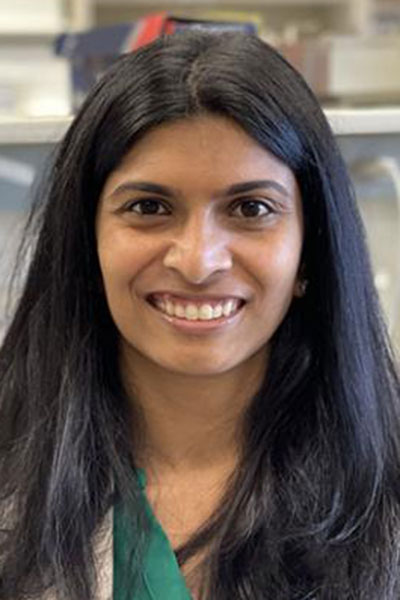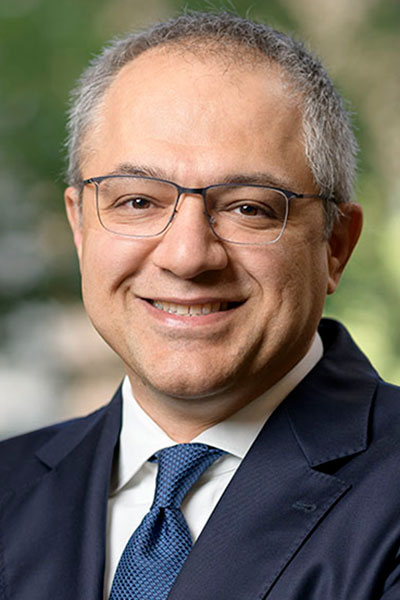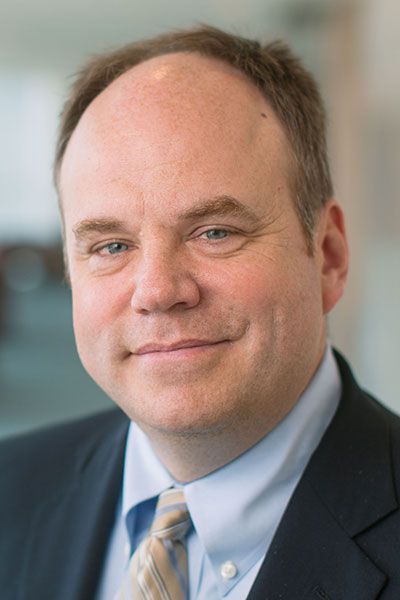Three Clinical Science workshops at the 2023 SABCS®—covering tumor agnostic trials, tumor boards, and clinical case discussions—may be of particular interest to clinical oncologists.

The clinical workshop Tumor Agnostic Approaches to Care, will be held from 2:05–3:05 p.m. CT, Tuesday, December 5 in the Stars at Night Ballroom 1-2. It will be moderated by Sangeetha M. Reddy, MD, from the UT Southwestern Medical Center in Dallas. Topics will include tumor agnostic trials of targeted therapies, antibody-drug conjugates (ADC) development across tumor types, real-world data, and defining a biological entity that is sensitive to immunotherapeutics.
The Molecular Tumor Board session will be held from 2:00–3:00 p.m. CT, Wednesday, December 6 in the Hemisfair Ballroom 1-2. It will be moderated by Pedram Razavi, MD, PhD, from Memorial Sloan Kettering Cancer Center in New York. He is a breast medical oncologist, Director of Liquid Biopsy & Genomics at MSK Global Biomarker Development Program and co-leads the MSK Breast Molecular Tumor Board.
Precision oncology is not a new topic in breast cancer, and its history goes back to the late 19th century when bilateral oophorectomy was suggested as a new treatment for patients with advanced breast cancer, explained Razavi . Since then, the field has made astounding advances: Scientists now utilize cancer genomics and molecular studies routinely in clinic to identify subsets of patients who could potentially benefit from biomarker-driven targeted therapies.
In explaining the significance of the Molecular Tumor Board, Dr. Razavi said that in the past decade, tens of thousands of breast cancers have been sequenced in clinical and research settings.

“These cumulative data have shed significant light on the increasing gap and disconnect between the clinic and the often-complex genomic data reported in the clinical genomic results,” he said. “For example, genomic information can be ascertained from a solid tumor sequencing or liquid biopsy report. This could identify unfamiliar driver mutations from established patterns of mutated genes to rarer alterations in breast cancer that may still be actionable. The extensive spatial and temporal genomic heterogeneity in breast cancer and the interaction between the genomic drivers can further complicate the interpretation of the results.”
Most importantly, Dr. Razavi explained that because it is almost impossible for practicing oncologists to stay current with the ever-increasing breadth and depth of genomic data, it is important to have the option to seek recommendations from expert-run Molecular Tumor Boards to address this knowledge gap.
“All these issues inspired us to embark on establishing a multidisciplinary Molecular Tumor Board dedicated to patients with breast cancer at MSK in February 2020,” said Dr. Razavi. “In our opinion, the multidisciplinary nature of the board was crucial.”
In his experience, Dr. Razavi said he found that discussing the molecular data of each case in the clinical, radiographic, and histologic context was vital.
“Hence, our Breast Molecular Tumor Board members include representatives with expertise in breast medical oncology, breast surgery, radiation oncology, breast and molecular pathology, breast and body radiology, breast cancer genomics and genetics, cancer biology and translational science, computational oncology, and early drug development,” he said.
Dr. Razavi’s board covers early-stage management, which includes establishing tumor type and relatedness that is often relevant to distinguish between local or distant recurrence from second primaries. The bulk of his board’s discussions cover strategies for metastatic management.
“We assist the treating oncologists with interpretation of genomic results from tumor and liquid biopsies and to discuss molecularly guided therapeutic options. And, of course, we also assist with overall diagnostic guidance, particularly to meet the challenges of diagnosing rare breast cancer subtypes or cancers with an ambiguous or unknown primary,” Dr. Razavi said. “More importantly, the board also includes trainees and fellows from all these disciplines to catalyze education and career development of the next generation of molecularly focused experts.”
Dr. Razavi hopes to have a similar discussion during this SABCS® session with this range of multidisciplinary specialties to showcase how such breast cancer-focused MTBs can help oncologists with management of their patients and, hopefully, help improve the care they provide.

The Clinical Case Discussions session will be held from 1:00–2:00 p.m. CT, Thursday, December 7 in the Stars at Night Ballroom 3-4. It will be moderated by Matthew P. Goetz, MD, at the Mayo Clinic College of Medicine and Science, Rochester, Minnesota. He is the Erivan K. Haub Family Professor of Cancer Research Honoring Richard F. Emslander, MD, and Professor of Oncology and Pharmacology.
This session consists of clinical case reports, and it relies on audience participation.
“Any clinician from the audience can come up to the microphone and ask questions,” Dr. Goetz said. “We also ask individuals to send in interesting cases ahead of time for us to discuss.
It’s a great opportunity to get expert input on challenging cases.”

